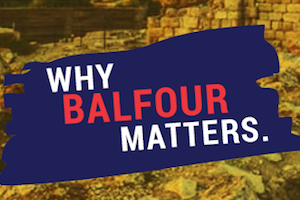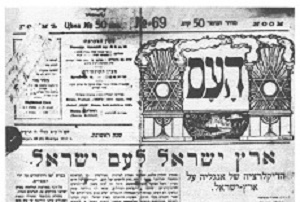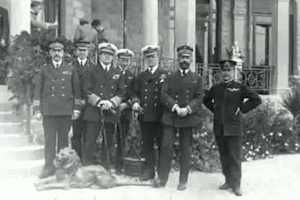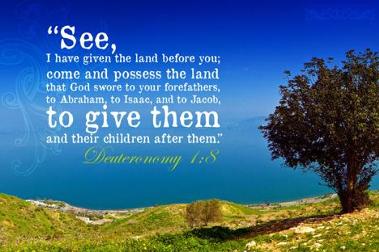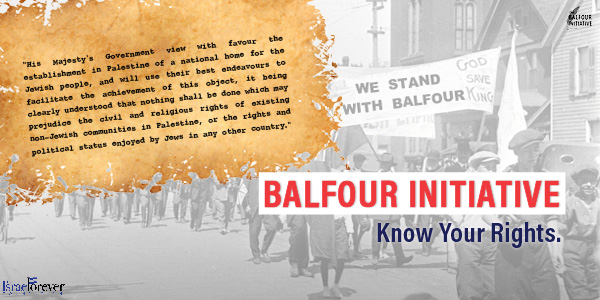The Power of Words: Balfour and The First Draft
On November 2nd, 1917 the letter, known as the Balfour Declaration was sent from Lord Balfour to Lord Rothschild announcing British support of a “national home for the Jewish people” in Palestine. Written and publicized as the first international recognition of Jewish rights for sovereignty in our ancestral homeland, this momentous event was, like any writing, the product of a process that required time, effort, patience and compromise.
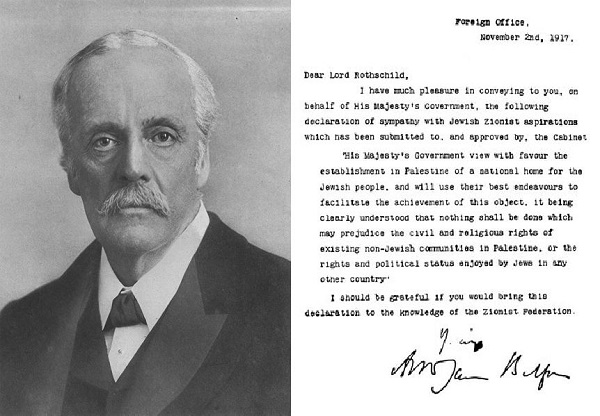
Following the infamous meeting between Balfour and Weizmann years earlier, the Zionist cause came to the attention of the then-British Prime Minister. When Lord Balfour was appointed as the Foreign Secretary in 1917, he was well-positioned to advance the Zionist dream. Thus, following several meetings between Balfour and Chaim Weizmann, a committee of fiery, passionate, and visionary Zionist leaders were actively involved in the drafting of what would become the historical declaration.
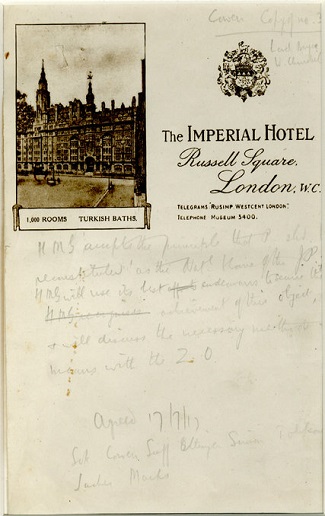
In any writing process, with many rounds of drafting and review there may be sentences, paragraphs, or even words that can be ambiguous and left up to the reader to grasp for themselves. When Leopold Amery, Achad Ha-Am, Cowen, Ettinger, Hyamson, Marks, Sieff, Leon Simon, Tolkowski, Jabotinski, Harry Sacher, Landman.came together to draft their proposal for Balfour, they faced real challenges in crafting a statement that would meet the high expectations of the British government but would also accommodate the deep desires of the Zionist vision.
On July 14, 1917, these members of the Zionist Political Committee met at the Imperial Hotel in London to do just that - by no means a simple task.The first draft, written by Leopold Amery focused on the importance of reconstituting the national home of the Jewish people and the impact on the Jewish people around the world. The committee continued to have ongoing debate over the proper wording and vision to be included in the public affirmation of Jewish nationalism, which was finalized on July 17 and then shared with Lord Balfour.
Josh Perelman of the National Museum of American Jewish History (NMAJH) emphasized the significance of the process. “The version on hotel stationary plainly stated that His Majesty accepted the principle of the National Home of the Jewish People in Palestine, and that he would endeavor for the achievement of that goal. The typed version expanded on that idea.Together, [the drafts] are able to show the iteration of process that led up to the official statement we know today. You can see them working through the vernacular."
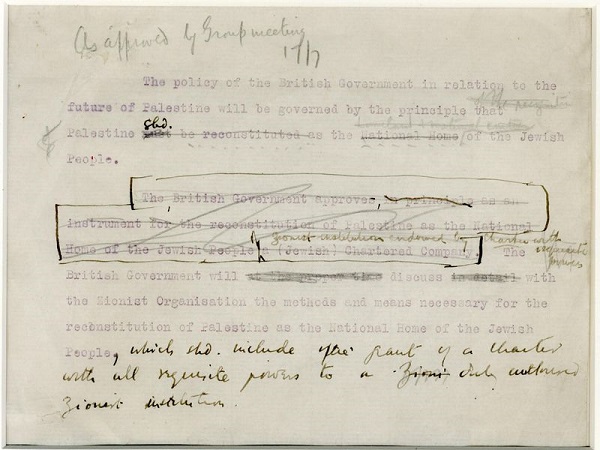
The Balfour Declaration was edited four times before the final copy was released on November 2nd, confirming His Majesty’s Government's recognition and commitment to the Jewish national homeland. Each edition had a different focus.
Lord Balfour took the letter and redrafted it again with merely a few words in a bit of a tamer manner as early drafts proved to be too detailed and elaborate for the Government. Later, Lord Milner continued to edit the declaration twice making the declaration more passive as well as focusing on how this would affect the other nations. Out of fear for what may happen with non- Jewish communities in the land, Edwin Samuel Montagu, an anti-Zionist Jew and Secretary of State for India, urged for changes in the early draft to incorporate protection from anti-semitic persecution. All of these edits crafted together the Balfour Declaration as we know it today. It emphasized that the land belonged to the Jewish people while at the same time showing the rights of the others around the land.
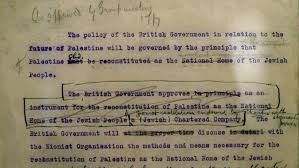
When drafting the final version of what became the official Balfour Declaration, Lord Balfour felt the need to be as explicit as possible in his wording, especially for the Jews, Arabs, and the British who would all be directly affected by its implementation, as this letter touched on issues that were of the utmost complexity. He understood the need to make sure that the recipient and its subsequent readers would understand with precision what was written and that there were no words that could be lost in translation or misconstrued.
Whereas many have claimed that the declaration was little more than a colonialist endeavor, the careful wording of each draft of the document demonstrates the deep thinking, strategic referencing, and overall goal of this 67 word letter that would change the course of history.
DISCUSS:
- In an earlier draft the Balfour Declaration refers to Jews as the “Jewish Race” in which later it changes to “The Jewish People”- why do you think this was an important change? What is the difference between a race and a people?
- Does the use of the term “state” then differ from its use today? Why would that matter in how we understand the drafting of Balfour’s public affirmation?
- What do you think are the most important aspects of the Balfour Declaration?
- What would you add or subtract from the declaration if written today?
ACTIVITIES YOU CAN DO TOGETHER OR ON YOUR OWN
READ the Balfour Centenary Declaration - why does this declaration matter?
IMAGINE you are one of the people involved in the drafting of Balfour’s proclamation.
WRITE a letter to your family and friends describing that experience and the significance of what is happening in Jewish history.DRAFT a declaration of your own - what affirmative stance do you feel you want to take? On what issue? Who would you send it to or share it with? WILL YOU DO IT?
Recommended for you:
About the Author


